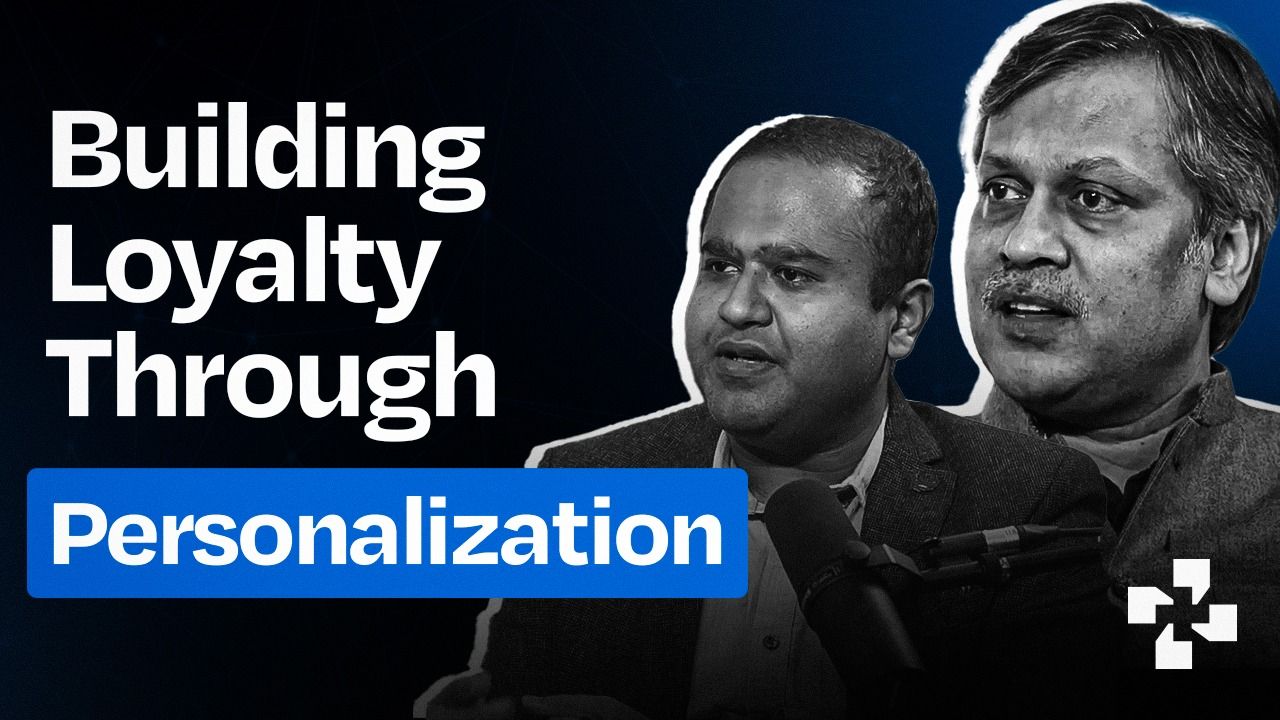Key takeaways:
01. Rebel Foods uses data to personalise recommendations, marketing campaigns, and in-app experiences.
02. The company focuses on understanding customer needs and addressing concerns promptly to build loyalty.
03. Rebel Foods utilises technology to streamline operations, personalise experiences, and improve efficiency.
04. The company’s strong IP portfolio, including proprietary recipes and technology, provides a competitive advantage and enables scalability.
Ever wondered how it would be to not have to specify in your order that you do not enjoy bits of cardamom in your biryani? Or you like crunchy, not cooked, onions in that chicken roll? Well, with a little bit of fine-tuning and technology, Rebel Foods, the parent brand of Faasos, Behrouz Biryani, Oven Story, and several others, is getting closer than ever to personalising your food.
“Providing a good product and experience is essential for any brand, but a deeper connection is formed when there’s an element of personalisation,” says Nishant Kedia, Chief Marketing Officer and Senior Vice President, own and licenced brands at Rebel Foods. “Today’s advanced technology allows us to create personalised experiences across all customer touchpoints, from social media to in-app recommendations.”
It is not just food delivery; multiple other businesses are increasingly leveraging data to personalise their customer experience, and Route Mobile is enabling many of these journeys.
Milind Pathak, Executive Vice President, Product and Marketing, Route Mobile, says, “Data is a valuable asset. If you focus on picking up data signals across multiple areas, you can make your value proposition much more powerful.”
In an exclusive interaction with YourStory’s Shradha Sharma, as part of Conversation Crafters in association with Route Mobile, Kedia and Pathak take us through their diverse approaches to building a data-driven customer engagement strategy. They also talk about the way technology is shaping many of these decisions, both for businesses and customers.
The conversation is critical at a time when food preferences and consumption patterns in India are increasingly turning hyperlocal. How India Eats, a study conducted by Swiggy and Bain & Company, found that consumption in India is complex and multilayered. On average, an Indian customer ordered more than three cuisines from over six restaurants in a year, an indication that building customer loyalty and gaining wallet share is tough.
Leveraging data
Pathak says if he were to look at Rebel Foods’ business from our lens of communication and customer experiences, “I don’t see them as a food or tech company. I see a data company”. This is because as the biggest cloud kitchen in the country, Rebel Foods knows the eating habits of a large chunk of the population.
He suggests that the business can gain valuable insights into the market and tailor products accordingly, by collecting and analysing this data.
Kedia agrees and speaks about the many ways Rebel Foods already leverages data to enhance customer engagement and improve their overall experience. The company analyses customer data across different channels, including their own app, order trends and ratings on different food ordering platforms, social media, and ad engagement.
Another interesting data point that helps inform product development and plug gaps are customer searches. “We have the data of what searches have happened in a particular geography. We analyse those to understand the demand trends, and it has helped us develop products,” Kedia says.
Leveraging AI
Consumer-facing businesses increasingly understand the importance of using AI to create a more personalised experience for their customers. Rebel Foods has deeper insights into customer behaviour and needs because it owns the entire food delivery stack, from food production to delivery.
“We have focused on personalisation across various digital touchpoints. We target customer cohorts based on their past orders, preferences, and demographics. This allows us to show relevant products, ads, and recommendations. We’ve also conducted A/B testing to optimise ad elements like size, text, and colour,” Kedia explains.
The company also personalises the in-app experience for each user. For instance, the sequence of brands displayed and the offers presented are tailored to individual preferences. The focus is on offering discounts relevant to a particular customer, and curating offers that maximise value for both the customer and the business.
Beyond personalisation, Rebel Foods has also invested in chatbot automation to provide efficient customer support.
Pathak believes that Generative AI has the potential to revolutionise personalisation in marketing. He adds that while the technology has been the “holy grail” for many years, there are still challenges to overcome in terms of practical implementation.
He highlights two key areas where Generative AI can be effectively used: personalised answers to customer queries, and creative optimisation for marketing creatives, such as ads, for better engagement and results.
However, Pathak also believes that mainstream adoption of the technology is still some time away, adding that it has the power to transform the way brands interact with customers in the long term. The key is to use it strategically.
The strategic intellectual property advantage
A key differentiator in Rebel Foods’ approach towards building a strong business is its strategic focus on a strong intellectual property (IP) portfolio. Its IP includes various aspects of operations, providing a competitive edge and enabling the company to scale efficiently.
“Our intellectual property is a cornerstone of our business. We’ve invested in building a strong portfolio, including our proprietary recipes, technology systems, and operating system. This enables us to scale efficiently, maintain a competitive edge, and explore opportunities for growth,” Kedia says.
The operating system is a technology-led system that can be leveraged by other businesses, empowering them to scale operations effectively. The company monetises this through franchising or licensing.
This IP-led approach has also helped it expand its presence into markets such as the UK and West Asia. Kedia says Rebel Foods has leveraged its IP to partner with local entrepreneurs and bring its brands to new markets.
Building a solid future
Both Kedia and Pathak emphasise the importance of customer focus and innovation as key drivers of success in the food delivery industry.
“We eat, sleep, drink, breathe customer focus,” says Pathak, talking about ways to build long-lasting relationships with customers. He stresses that solving customer problems is the key to earning loyalty and positive word-of-mouth.
Kedia believes the future of the food industry lies in ensuring no customer is left dissatisfied. “When it comes to customer dissatisfaction, immediate action is crucial. We strive to not only resolve the issue but also delight the customer with a memorable experience. By addressing concerns promptly and learning from each incident, we aim to prevent future recurrences and foster long-term loyalty,” he says.
As the food delivery industry continues to evolve, it is clear that technology will play an increasingly important role in shaping the future of customer experiences. Businesses that embrace innovation and leverage data are the best positioned to succeed.










